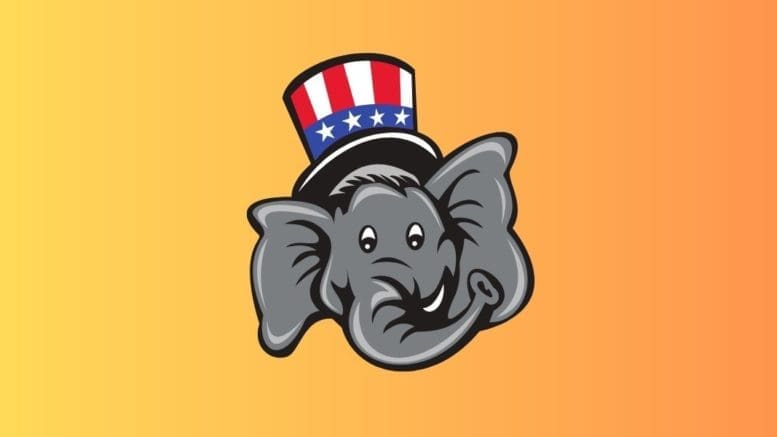by John A. Tures, Professor of Political Science, LaGrange College
Since 2016, Republicans have been losing the suburbs like Cobb County and college towns like Tuscaloosa, Alabama. Despite locating their fourth debate at the University of Alabama, the candidates who showed up offered little for residents of either. And with their current focus, they could fall further behind in both key locations in 2024 until they start listening to what people in both want.
I downloaded the transcript of the debate to see how often the four candidates addressed issues related to both areas. The word “suburb” never appeared once in the whole debate.
“College” was brought up five times, three of them in the context of antisemitism. We should never tolerate hate directed against Jews. But as residents of Cobb County, Brookhaven, and other suburbs in Georgia know, there’s far more antisemitism and targeted hate speech against Jewish people and synagogues off college campuses, and in their neighborhood. And it’s been going on long before October 7.
Outrage against college campuses seems awfully selective when elected officials of one’s own party, media moguls and hedge fund managers spread anti-Jewish conspiracy theories with little opposition at best.
Former South Carolina Governor Nikki Haley did say at the end “Thank you very much. Our country is in chaos. We see it on the southern border. We see it on our streets, in our cities, we see it on college campuses. We feel it with our economy, with inflation and with debt. And we feel it around the world with wars in Europe and within the Middle East. We have to stop the chaos, but you can’t defeat Democrat chaos with Republican chaos. And that’s what Donald Trump gives us. My approach is different. No drama, no vendettas, no whining. I envision an America where we’re protected from illegal immigration and Chinese infiltration. I envision an America where we unleash our economy and we reject socialism.”
Florida Governor Ron DeSantis came a little closer when he said “These Republicans in Washington have spent, it’s driven your prices higher, and it’s driven your interest rates to the point where you can’t afford… I met a young fellow in Iowa, he had graduated college a couple years ago and he’s like, ‘Governor, I don’t have a chance. I’m gainfully employed.’ He’s like, ‘I have no chance to afford a home and start a family,’ that is taking the American dream away from people.”
Having gone to the GOP debate in Tuscaloosa, I can say that college students are concerned about getting a good job and owning a home. They recognize that they’ll get jobs, but worry that they won’t be able to afford a home until much later in life.
DeSantis went on. “So, we’re going to get the inflation down, we’re going to get the interest rates down, we are going to reduce spending, and I will be willing to veto and I vetoed a lot as governor of Florida and we’ll do that. We’re also going to open up all of our domestic energy for production, lower your gas prices, lower the price of fuel.”
That’s where Republicans have their work cut out for them. Having talked with them at the debate, and teaching a pretty good cross-section of them, I know a little about what they think. They’re not against all government spending; policies aimed at making college affordable and reducing their own debt would help. GOP ideas about energy would be better aimed at market choice, allowing consumers a market-driven multitude of energy sources, which would do more than promises of drilling everywhere and the environmental consequences of such.
Younger people in suburbs and college towns aren’t as anti-immigration or anti-LGTBQ as rural areas, yet the latter seems to hold sway over Republican policies. Haley speaks of chaos in the Middle East and East Europe. These voters worry about Russia, China and Hamas but it’s one party leading the charge to cut support to Ukraine, Israel and Taiwan, and it isn’t the Democrats.
You’ve heard Republicans complain about flyover country where the rural areas are ignored by Democrats. Yet the GOP seems to be engaging in a by-pass policy, disregarding the views of college towns and suburbs. It’s a recipe for losing a winnable election in 2024.
John A. Tures is a professor of political science at LaGrange College in LaGrange, Georgia. His views are his own. He can be reached at jtures@lagrange.edu. His Twitter account is JohnTures2.

